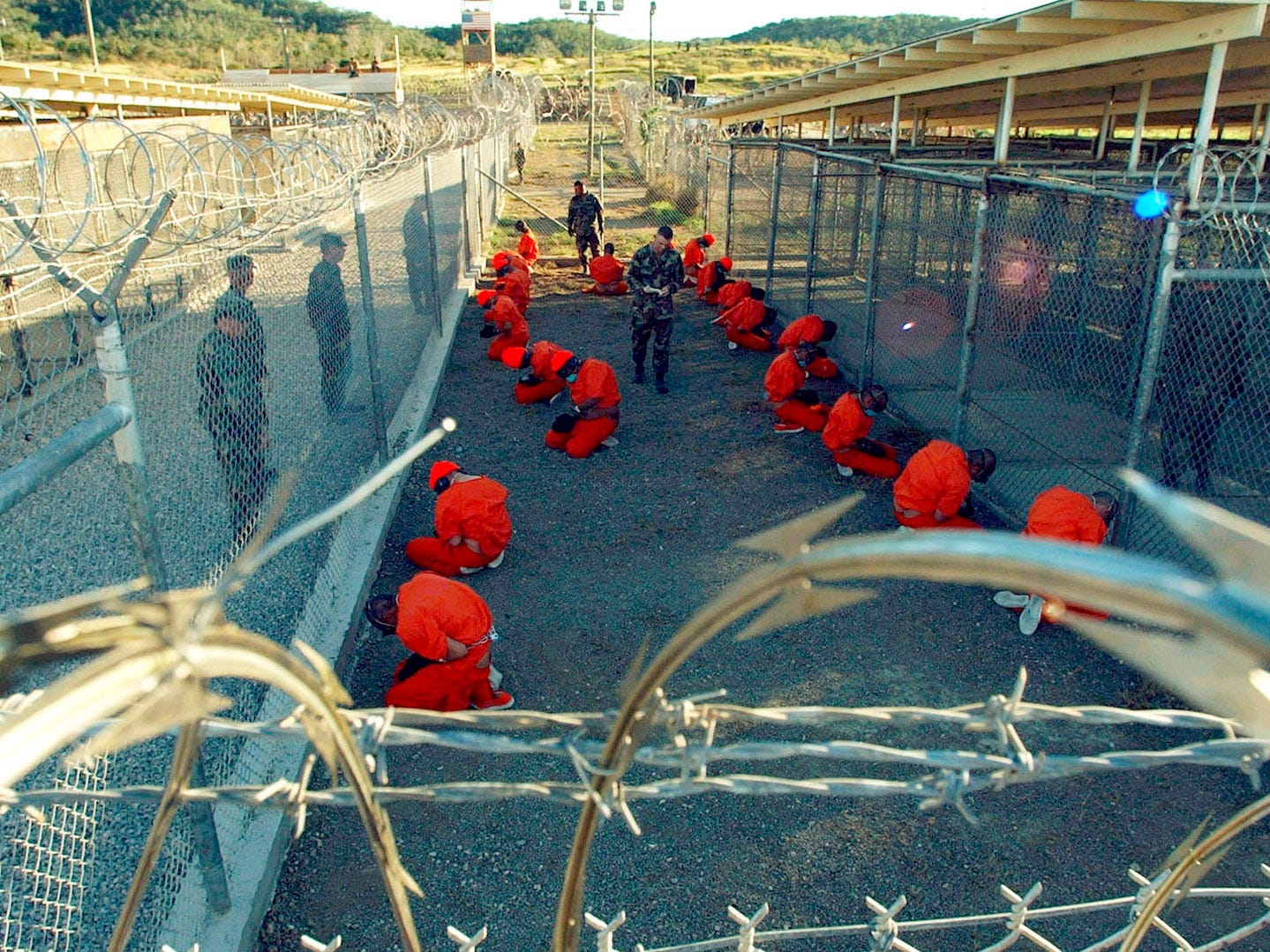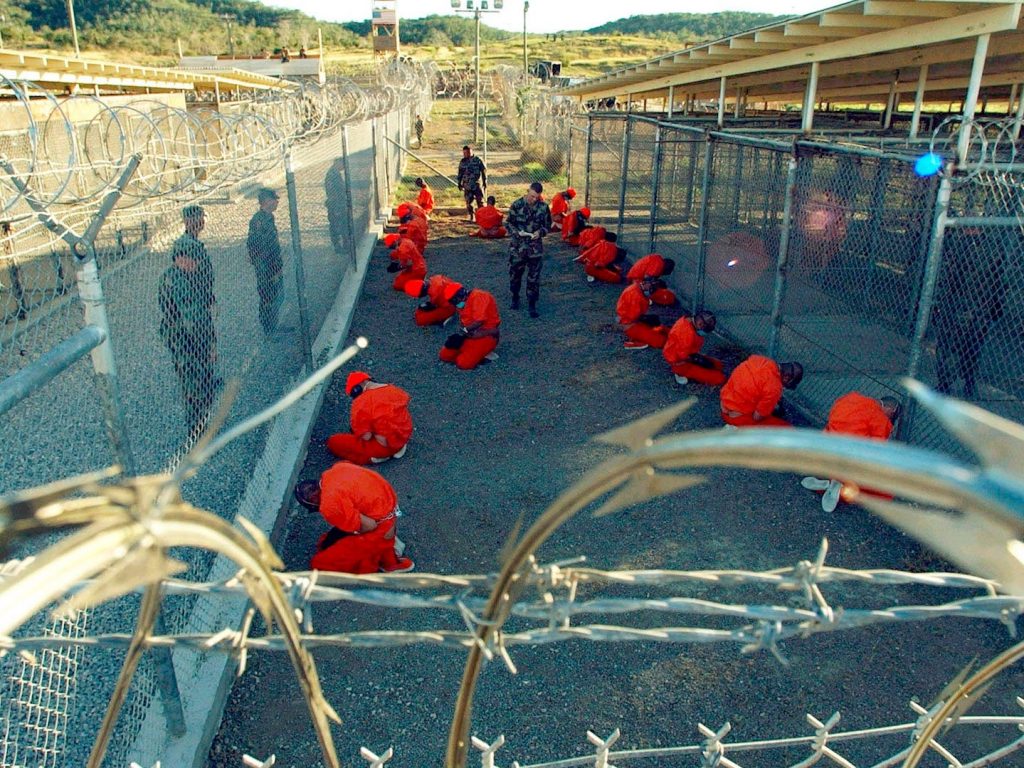
Petty Officer 1st class Shane T. McCoy/US Department of Defense Handout via Reuters
- A military jury sentenced a terrorist to 26 years but some wrote a letter requesting clemency.
- The letter said the torture Majid Khan experienced "is a stain on the moral fiber of America."
- Khan said he was subject to force-feeding, waterboarding, and physical and sexual abuse.
A military jury wrote a letter condemning torture tactics used by the CIA against a convicted terrorist after sentencing the man to 26 years in prison, The New York Times reported.
On Thursday, the jury, which was made up of active-duty senior military officials, heard graphic descriptions of the torture Majid Khan, 41, was subjected to while being held at CIA black sites. Khan, who graduated from a high school near Baltimore, served as a courier for Al-Qaeda before he was captured.
He spoke before the jury, who had been brought to Guantanamo Bay where he has been detained, to determine his sentence. He became the first person to openly describe the torture he went through at a black site.
Khan said he experienced force-feeding, waterboarding, and physical and sexual abuse. He said he was isolated while nude, chained up in the dark, and nearly drowned.
On Friday, the jury, which was required to deliver a sentence of 25 to 40 years, sentenced Khan to 26 years. Seven of the eight military jurors also wrote a letter to Pentagon officials asking for Khan to receive clemency, the Associated Press reported.
The Times obtained and published the two-page, handwritten letter on Sunday.
"Mr. Khan was subjected to physical and psychological abuse well beyond approved enhanced interrogation techniques, instead being closer to torture performed by the most abusive regimes in modern history," the letter said.
"This abuse was of no practical value in terms of intelligence, or any other tangible benefit to US interests," it continued. "Instead, it is a stain on the moral fiber of America; the treatment of Mr. Khan in the hands of US personnel should be a source of shame for the US government."
In requesting clemency, the letter also noted that Khan had been held without charge or trial for nearly a decade, which is allowed for terrorists who have been deemed "alien unprivileged enemy belligerents." It said the practice represented a "complete disregard for the foundational concepts upon which the Constitution was founded" and an "affront to American values and concept of Justice."
Khan was one of the 14 "high-value detainees" who had been sent to Guantanamo after being subjected to interrogations at CIA black sites that were established around the world during the beginning of the war on terror, AP reported.
Thirty-nine prisoners remain at Guantanamo Bay, despite President Joe Biden's desire to close the detention camp. Some are awaiting trial under the military commission system that Khan was just sentenced under. Others have never been charged with a crime but are deemed too dangerous to release.
A third group has been cleared for release but is waiting for the US to establish placement for them in another country where they can be let go under specific security conditions.
Have a news tip? Contact this reporter at [email protected].

